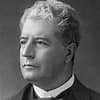
Understanding your heart risk
When it comes to heart disease there are a range of factors that may increase your risk such as age, family history, cholesterol levels, blood pressure and other lifestyle influences like if you smoke or how much exercise you do on a daily basis.
According to data published by the Australian Institute of Health and Welfare, the leading cause of death for veterans aged 50 and over is heart disease.
If you’re ready to improve your health but are finding it hard to get started, then our Heart Health program might be for you. Open to all veterans and peacekeepers who have not previously participated in a Heart Health program, the 52 week program will help you to increase your physical health and wellbeing through exercise, education, nutrition and lifestyle management support.
Another important way you can reduce your heart disease risk is by knowing if you are at risk. Finding this out means you can take preventative action, and access early interventions and treatment for your condition.
A good starting point is to find out your heart age. Your heart age is calculated by assessing your risk factors for heart disease; a younger heart age means your risk of developing heart disease is lower. It’s easy to find out your heart age by completing the Heart Foundation’s online Heart Age Calculator.
The good news is even if you’re at risk of developing heart disease there are many ways to reduce your risk and prevent heart disease from occurring, including:
- exercising regularly
- eating well
- connecting with others
- quitting smoking
- limiting alcohol
- practicing mindfulness
For more information about the Heart Health program visit www.dva.gov.au/get-support/health-support/work-and-social-life-programs/heart-health-program




Gained a lot of valuable help from the DVA Heart Health Programme. Practical advice from qualified, hands on trainers, not swamped with BUMF paperwork, a well laid out diary and check lists with regular progress checks. Heartily (slight pun) endorse this programme, especially for vets who may be carrying the odd spare kilo or three. Live better, live longer, Good Luck.